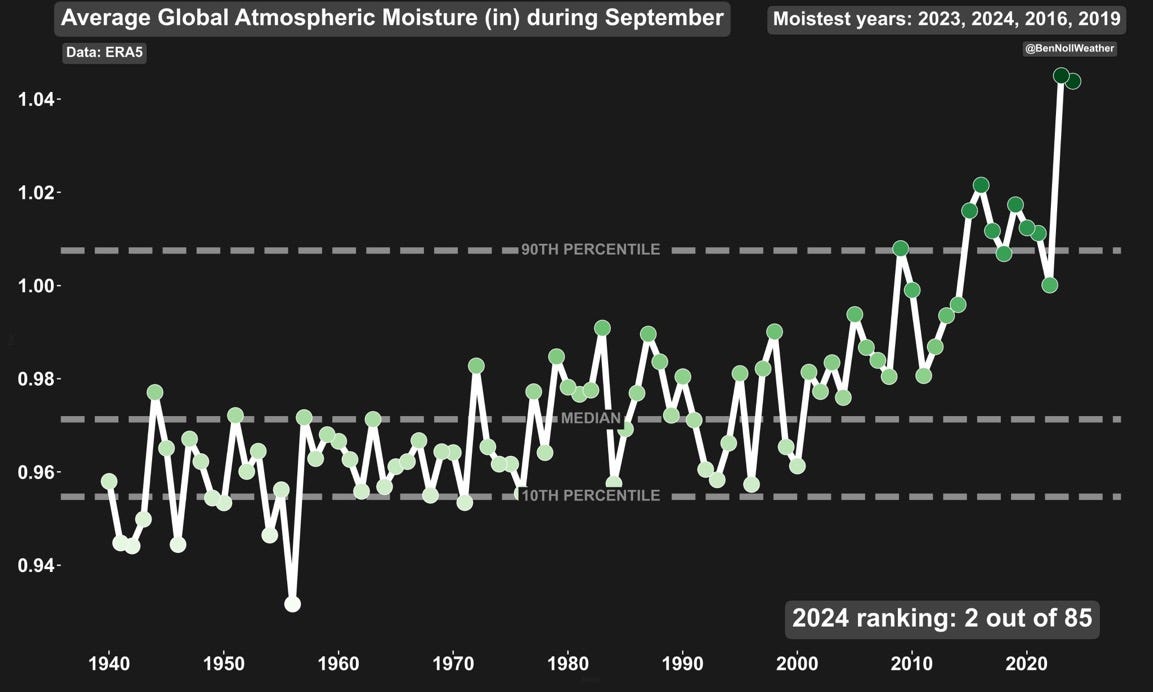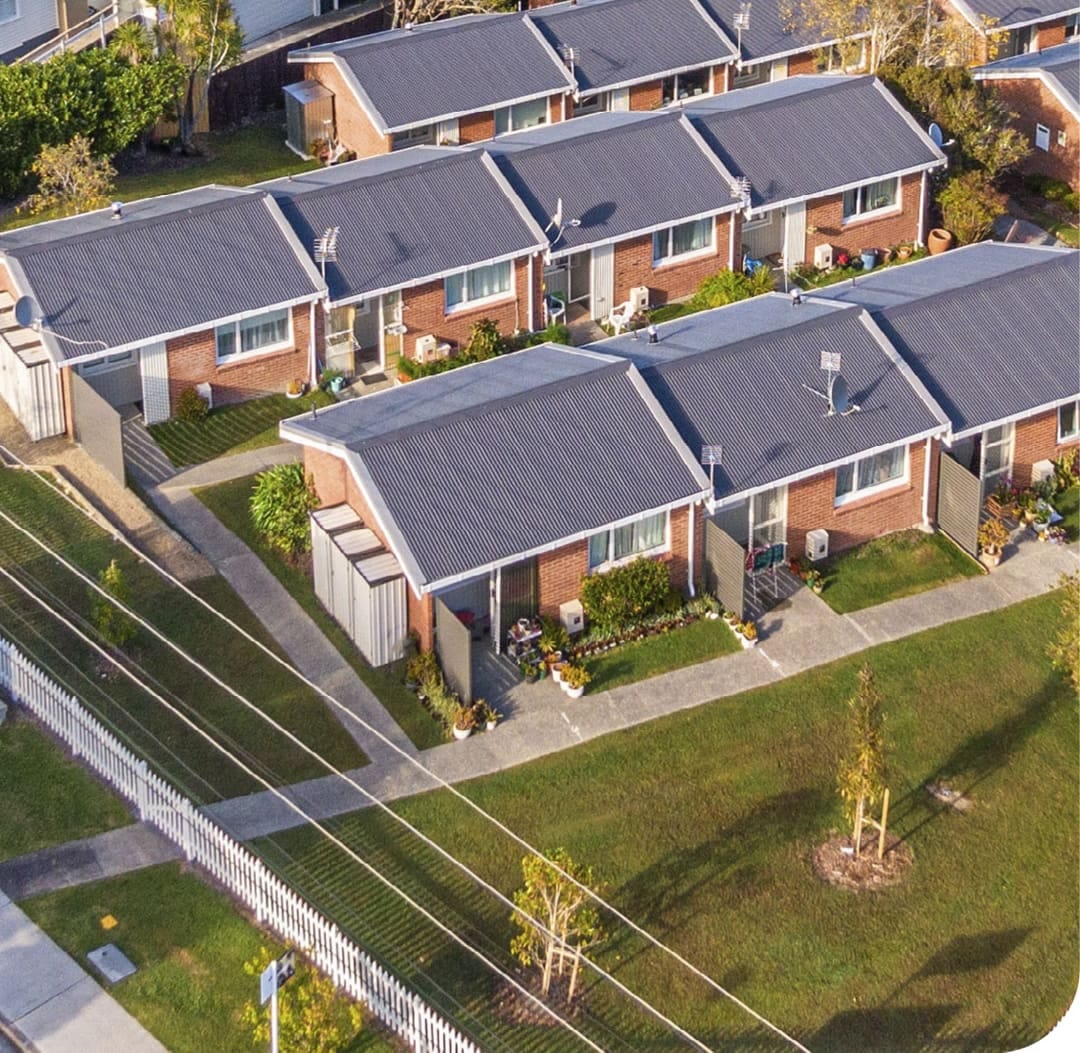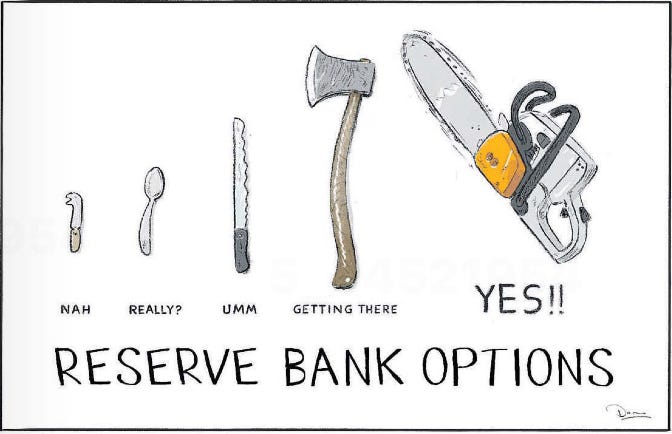Kia ora. Long stories short, here’s my top six things to note in Aotearoa’s political economy around housing, climate and poverty on Wednesday, October 9:
The Government has cut $6 million from subsidies for an Auckland social housing provider with three days notice, which will force it to leave houses empty that needed refurbishing, Auckland Councillor Richard Hills said last night.
In thek scoop of the day, BusinessDesk-$$$’s Oliver Lewis reveals MBIE’s advice to Simeon Brown and Shane Jones that sharply higher electricity bills next year will hit businesses and add to pressure on hospital A&Es from poor households skimping on power and getting sicker in winter.
In the deep-dive of the day, Marc Daalder starts a major series of articles at Newsroom on the effects of Long Covid.
In solutions news, the Government provided $35 million to jump-start a Tainui plan for 100 new homes.
In quote of the day, a group of eminent climate scientists warned overnight of an irreversible climate disaster without urgent action to decarbonise and decelerate the global economy.
The chart of the day shows how rising global temperatures have massively increased air moisture.
(There is more detail, analysis and links to documents below the paywall fold and in the podcast above for paying subscribers. If we get over 100 likes we’ll open it up for public reading, listening and sharing.)
1. Govt cuts $6m in subsidies for Auckland social housing
Coalition actions at odds with preference to use community providers
The Government has talked up its willingness to get Community Housing Providers to take over the role of building new social housing, but its actions so far appear at odds with that.
Auckland Councillor Richard Hills said last night that $6 million had been cut from subsidies for Haumaru Housing, an Auckland social housing provider with 1,400 pensioner units, with just three days notice, which will force it to leave houses empty that needed refurbishing.
“The government has cut about $6m a year from the subsidies they were providing for Haumaru Housing, who provide senior housing, for older Aucklanders who can least afford housing. (About $200 per week per resident).
“This was done for no particular reason they can explain. This will mean more empty senior housing units as there will be extremely limited budget for them to refit and upgrade the current ones as tenants leave, let alone invest in any new ones.
“These funds were providing homes for older residents through the model set up between Auckland Council and the Selwyn Foundation. With one of the main benefits being the ability to access the income related rent subsidies.
“Haumaru Hosuing received THREE days notice of this dramatic change.” Auckland Councillor Richard Hills via X
2. Scoop of the day: Inflation, business & health warning
Administered prices from monopoly providers of essential services such as electricity are set to keep inflating much faster than CPI inflation, which in turn will pressure already stressed households and the health system.
BusinessDesk-$$$’s Oliver Lewis reports this morning MBIE’s advice to Simeon Brown and Shane Jones that sharply higher electricity bills next year will hit businesses and add to pressure on A&Es from poor households skimping on power and getting sicker in winter. Here’s the detail (bolding mine):
“Electricity prices are likely to rise significantly over the next two years. The relative stability of electricity prices during the past decade masks several underlying trends that will affect power bills,” MBIE said.
“Several generator-retailers (‘gentailers’) have recently signalled that household prices will increase by modest amounts in coming months. More significant rises are expected in 2025 when the regulated allowable revenue for Transpower and many electricity networks are reset.
“Some distributors fear that the commission may put too much emphasis on protecting consumers from price increases when determining the next price-path reset, which they worry could constrain the investment needed to support electrification and supply resilience.
In their advice, the MBIE officials said network investments were likely to be the largest driver of bill changes during the transition to 2050 (presumably net zero 2050).
“Greater network investment will be essential to avoid outages, support economic growth and moderate longer-term household bills,” the advice said.
“Much of New Zealand’s electricity grid was built in the 1950s and 1970s and requires major replacements and refurbishments to remain resilient to extreme weather, seismic hazards and cyber threats. A step up in investment will also be required to expand grid capacity and connections as households and businesses electrify their transport, heating and industrial processes.”
Brown and Jones were warned of the impacts of higher electricity bills and told of steps – or levers – the Government and others could take, including supporting more flexible electricity use to help soften peak demand and providing targeted support for at-risk households.
“The risks of households not being able to afford energy are serious and wide-ranging. More than 110,000 households in NZ could not afford to keep their home adequately warm for the year ended June 2022, putting them at risk of worse outcomes from health conditions like respiratory diseases," officials said, noting NZ is one of the last high-income countries in the world with significant rheumatic fever.
This would put increased pressure on the health system, the advice added.
“Higher electricity prices also increase the costs to industry, large and smaller businesses of electrifying, which could harm future economic performance.” BusinessDesk-$$$’s Oliver Lewis
Honorable mentions
Health: Health NZ wants to cut four chief medical officer roles RNZ’s Phil Pennington
Infrastructure & Poverty: ‘Disturbed’: Corrections’ bid to nearly double Auckland Prison capacity blindsides council, locals NZ Herald’s Jamie Ensor
Housing: Kāinga Ora board member slams Bill English review in resignation letter NZ Herald-$$$’s Azaria Howell
Health Struggling GP practice says Health NZ committee told it to start cafe to bring in cash RNZ’s Checkpoint
Climate: ‘Round the clock’ hazards monitoring at risk from funding gap Newsroom Pro-$$$’s Sam Sachdeva
Climate & Business: Breathing space proposed for climate reporting businesses BusinessDesk-$$$’s Greg Hurrell
3. Deep-dive of the day
Health: The Burden: Long Covid sufferers’ quality of life close to MS patients Newsroom’s Marc Daalder
Honorable mentions
Education & Infrastructure: Auckland schools bursting at the seams: How it could leave out of zone students in the cold NZ Herald’s Chelsea Daniels
Health & Politics: Health NZ finances reveal when fractures began to show. The private frustration and panic in the lead-up to the Government installing a commissioner at Health NZ is clearer after a massive dump of documents. The Post-$$$’s Rachel Thomas
Foreign Policy: NZ’s independent foreign policy hugely compromised Helen Clark and Marco de Jong in Newsroom
4. Solutions news: More houses
Housing: Government and iwi partner to build affordable homes RNZ
Honorable mentions
Climate: Offshore wind company doubles-down on opposition to seabed mining RNZ
Climate: Wind farm big enough to power 150,000 homes could be fast-tracked RNZ
5. Quote of the day: ‘A critical new phase’
"We are on the brink of an irreversible climate disaster. This is a global emergency beyond any doubt. Much of the very fabric of life on Earth is imperiled. We are stepping into a critical and unpredictable new phase of the climate crisis.” Prominent climate scientists, including Johan Rokstrom, Michael Mann and Stefan Rahmstorf write jointly in an Oxford University Press paper published in BioScience overnight. It’s called: The 2024 state of the climate report: Perilous times on planet Earth.
6. Chart of the day: Too much heat = too much water

The Kākā’s Journal of Record for Wednesday, October 9
Building and Construction Minister Chris Penk announced the Government is considering creating a new offence for deliberately hiding non-compliant work from remote inspections, with penalties of $50,000 to $150,000. The Government is also considering "strengthening" existing competence and accountability requirements for building professionals.
Associate Housing Minister Tama Potaka announced the Government would contribute $35 million to a Waikato-Tainui project to build 100 affordable rental homes on the iwi group's land north of Ngāruawāhia. Separately, BNZ announced a framework to lend for housing on Māori land using leasehold mortgage lending practices.
Tertiary Education & Skills Minister Penny Simmonds and Social Development & Employment Minister Louise Upston announced funding for Apprentice Boost, a $500 monthly payment made to employers taking on apprentices, would only be available for first-year apprentices in sectors will skills shortages from January 2025.
The Financial Markets Authority filed proceedings against ASB Bank, alleging it misled customers by failing to apply fee exemptions and multi policy discounts for certain customers, and falsely suggesting, in some cases, that customers were eligible for discounts. The FMA estimated the issue affected 23,062 customers and led to roughly $2.8 million in overcharged premiums. Stuff, BusinessDesk
Transport: The Government will temporarily extend the amount of time people can drive on overseas driving licences from 12 to 18 months, Transport Minister Simeon Brown announced, citing long wait times for licence tests. Brown said there's still "more work to do" to meet the target of 90% of practical tests being taken within 30 days of booking.
Cartoon of the day: Adrian’s tool kit
Timeline cleansing nature pic of the day
Nature wins in the end
Ka kite ano
Bernard
PS: Lynn and I are travelling to Australia to be with a family member in ill health for the next couple of weeks so these emails may be truncated or dropped while we’re doing that. Our apologies and we’ll do our best while travelling.
















Share this post